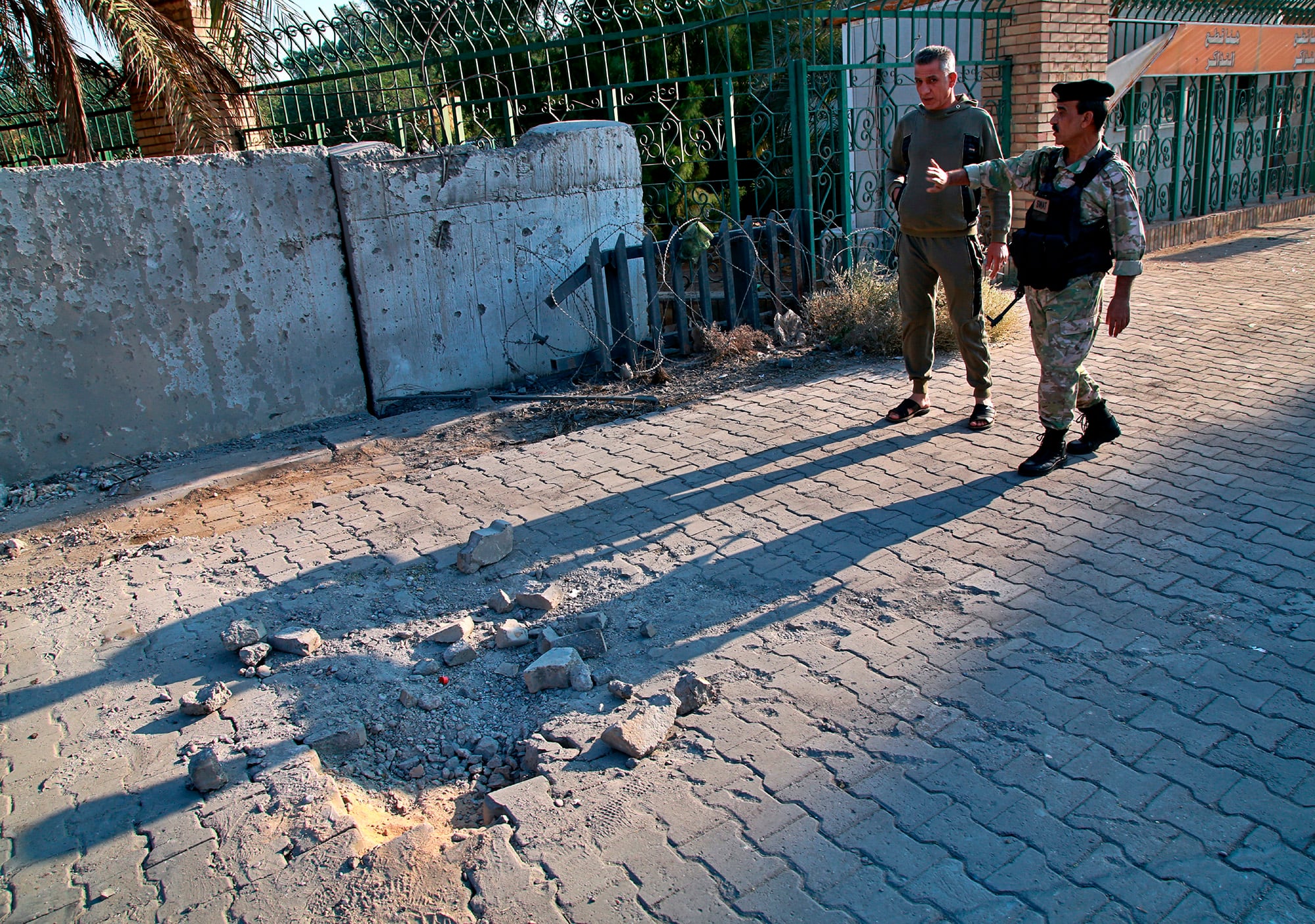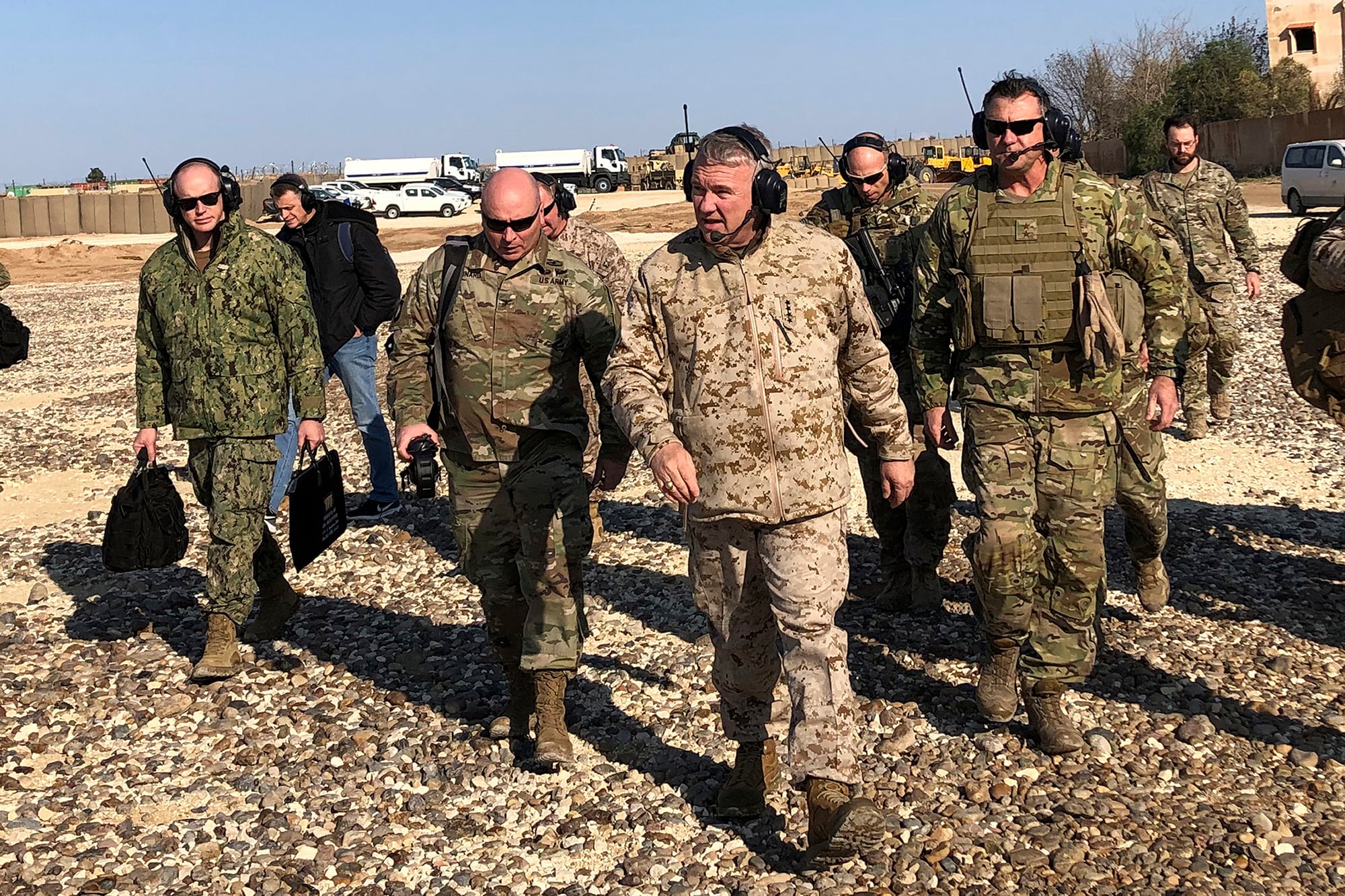When rockets struck Baghdad’s Green Zone on Tuesday, within hours of the U.S. announcing it would draw down 500 troops from its presence in Iraq, it marked the end of an October truce between Iranian-backed militias and coalition forces.
But American deterrence against Iran is largely working, Marine Gen. Frank McKenzie, who heads U.S. Central Command, said Thursday in his remarks at the virtual Arab-U.S. Policymakers Conference.
“I believe the Iranian regime recognizes if they get into an escalatory spiral with the United States, it will not end well for them,” he said. “So that’s why we’ve seen a recent decline in these tensions at sea, and attacks against us in Iraq and other places.”
But though things may seem like they’ve returned to normal, he added, Iran will continue to find ways to undermine the U.S., whether through overt attacks or other influence.
Tensions reached a fever pitch earlier this year, when the U.S. assassinated Maj. Gen. Qassem Soleimani, a leader of the Islamic Revolutionary Guard Corps responsible for coordinating numerous attacks on U.S. troops in Iraq.
Since then, attacks have been down, McKenzie said, as have aggressive maneuvers of the IRGC Navy in the Persian Gulf, which in recent years have harassed U.S. ships.
“Today, I believe Iran has been largely deterred, because the regime now understands we possess both the capability and the will to respond,” McKenzie said.
He also attributed the drop in attacks to the aftermath of Soleimani’s killing, when members of Iraq’s government moved to expel American troops, giving Iran hope that it had achieved its mission of kicking the U.S out of Iraq for good.
“The government of Iraq has clearly indicated it wants to maintain its partnership with the United States and coalition forces as we continue to finish the fight against ISIS,” McKenzie said of the decision not to expel the U.S.
RELATED

The United Nations estimates that there are as many as 10,000 ISIS fighters still living in Iraq and Syria, with the ability to carry out attacks, even if they no longer control land.
At the same time, President Donald Trump has ordered further troop reductions in Iraq, from 3,000 to 2,500 by Jan. 15.
Iraq’s foreign minister, Fuad Hussein, told the Associated Press on Wednesday that combat operations against ISIS would end following that drawdown, though he acknowledged that plans may change as President-elect Joe Biden takes office.
“Our dialogue is ongoing and we are following the situation and political changes in the U.S., and there are ongoing meetings to assess the coming stage,” he said.
Meghann Myers is the Pentagon bureau chief at Military Times. She covers operations, policy, personnel, leadership and other issues affecting service members.





